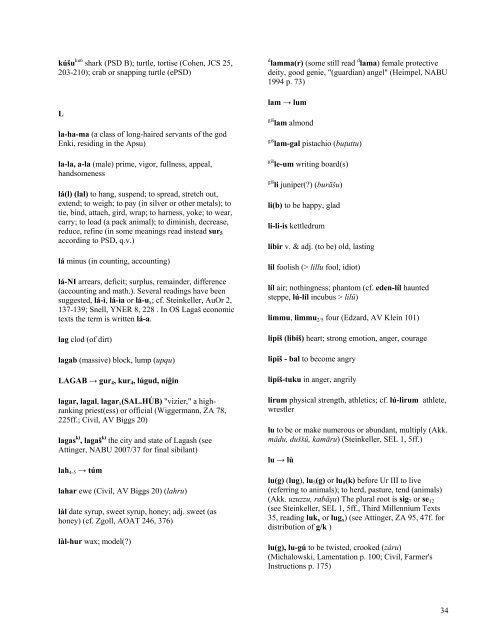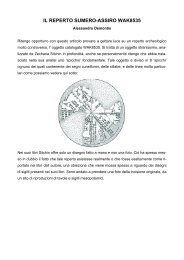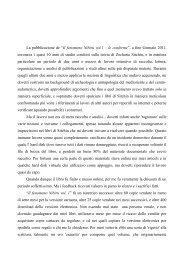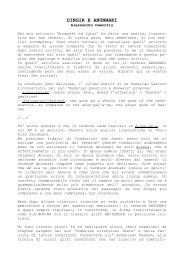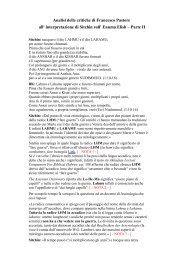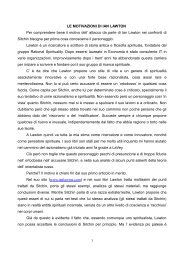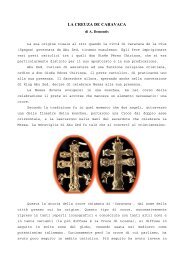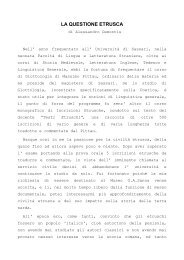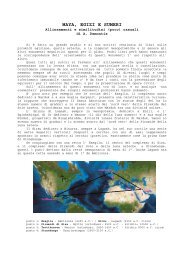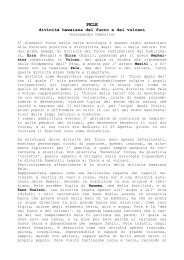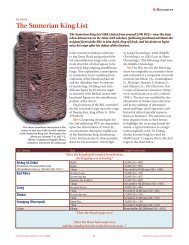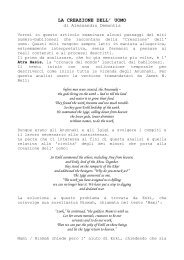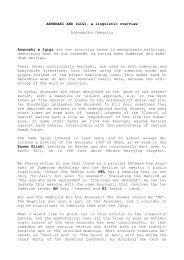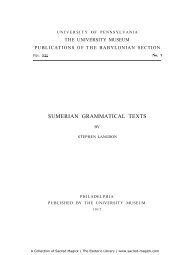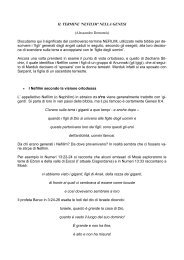Elementary Sumerian Glossary
Elementary Sumerian Glossary
Elementary Sumerian Glossary
You also want an ePaper? Increase the reach of your titles
YUMPU automatically turns print PDFs into web optimized ePapers that Google loves.
kúšu ku6 shark (PSD B); turtle, tortise (Cohen, JCS 25,<br />
203-210); crab or snapping turtle (ePSD)<br />
L<br />
la-ha-ma (a class of long-haired servants of the god<br />
Enki, residing in the Apsu)<br />
la-la, a-la (male) prime, vigor, fullness, appeal,<br />
handsomeness<br />
lá(l) (lal) to hang, suspend; to spread, stretch out,<br />
extend; to weigh; to pay (in silver or other metals); to<br />
tie, bind, attach, gird, wrap; to harness, yoke; to wear,<br />
carry; to load (a pack animal); to diminish, decrease,<br />
reduce, refine (in some meanings read instead sur5<br />
according to PSD, q.v.)<br />
lá minus (in counting, accounting)<br />
lá-NI arrears, deficit; surplus, remainder, difference<br />
(accounting and math.). Several readings have been<br />
suggested, lá-ì, lá-ìa or lá-ux; cf. Steinkeller, AuOr 2,<br />
137-139; Snell, YNER 8, 228 . In OS Lagaš economic<br />
texts the term is written lá-a.<br />
lag clod (of dirt)<br />
lagab (massive) block, lump (upqu)<br />
LAGAB → gur4, kur4, lúgud, níĝin<br />
lagar, lagal, lagarx(SAL.HÚB) "vizier," a highranking<br />
priest(ess) or official (Wiggermann, ZA 78,<br />
225ff.; Civil, AV Biggs 20)<br />
lagas ki , lagaš ki the city and state of Lagash (see<br />
Attinger, NABU 2007/37 for final sibilant)<br />
lah4-5 → túm<br />
lahar ewe (Civil, AV Biggs 20) (lahru)<br />
làl date syrup, sweet syrup, honey; adj. sweet (as<br />
honey) (cf. Zgoll, AOAT 246, 376)<br />
làl-hur wax; model(?)<br />
d lamma(r) (some still read d lama) female protective<br />
deity, good genie, "(guardian) angel" (Heimpel, NABU<br />
1994 p. 73)<br />
lam → lum<br />
giš lam almond<br />
giš lam-gal pistachio (buţuttu)<br />
giš le-um writing board(s)<br />
giš li juniper(?) (burāšu)<br />
li(b) to be happy, glad<br />
li-li-ìs kettledrum<br />
libir v. & adj. (to be) old, lasting<br />
lil foolish (> lillu fool, idiot)<br />
líl air; nothingness; phantom (cf. eden-líl haunted<br />
steppe, lú-líl incubus > lilû)<br />
limmu, limmu2/5 four (Edzard, AV Klein 101)<br />
lipiš (libiš) heart; strong emotion, anger, courage<br />
lipiš - bal to become angry<br />
lipiš-tuku in anger, angrily<br />
lirum physical strength, athletics; cf. lú-lirum athlete,<br />
wrestler<br />
lu to be or make numerous or abundant, multiply (Akk.<br />
mâdu, duššû, kamāru) (Steinkeller, SEL 1, 5ff.)<br />
lu → lù<br />
lu(g) (lug), lu5(g) or lu5(k) before Ur III to live<br />
(referring to animals); to herd, pasture, tend (animals)<br />
(Akk. uzuzzu, rabāşu) The plural root is sig7 or se12<br />
(see Steinkeller, SEL 1, 5ff., Third Millennium Texts<br />
35, reading lukx or lugx) (see Attinger, ZA 95, 47f. for<br />
distribution of g/k )<br />
lu(g), lu-gú to be twisted, crooked (zâru)<br />
(Michalowski, Lamentation p. 100; Civil, Farmer's<br />
Instructions p. 175)<br />
34


